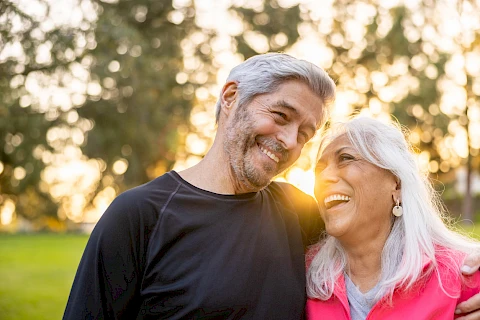
It's no secret that our immune system requires more care and attention as we age. One nutrient that often goes overlooked in this process is Vitamin D. Renowned for its role in bone health, Vitamin D is also vital in supporting a robust immune system, particularly for seniors.
What Is Vitamin D?
Often coined as the "sunshine vitamin," Vitamin D isn't just a vitamin; it's also a hormone your body produces in response to sunlight. It's key in absorbing calcium, ensuring bone health, and an important player in our overall immune function. For seniors, whose immune function is naturally waning, Vitamin D becomes even more important.
Vitamin D and Immunity
Our immune system is the body's natural defense against infections and diseases. Vitamin D acts like a commander of your immune system, boosting the function of immune cells, including T-cells and macrophages, that protect your body from pathogens.
Recent studies have unveiled that Vitamin D's protective effects are even more critical as we age. Seniors with sufficient Vitamin D levels are shown to have a better fighting chance against common colds, influenza, and more serious health conditions, including pneumonia.
Risks of Vitamin D Deficiency
However, failing to get enough Vitamin D poses serious risks, particularly for seniors. The body's ability to produce Vitamin D from sun exposure decreases with age, putting seniors at a higher risk of deficiency.
This deficiency can lead to a weakened immune system, increased susceptibility to infections, and long-term conditions like osteoporosis and heart disease. Because the symptoms of a deficiency are subtle — like fatigue and aches — it can often go unnoticed, making it a silent threat.
Ensuring Adequate Vitamin D Intake
Avoiding Vitamin D deficiency requires a three-pronged approach: diet, supplements, and sunlight. Incorporating Vitamin D-rich foods like fatty fish, fortified dairy products, and egg yolks can help boost levels. Physicians often recommend vitamin D supplements for those with dietary restrictions.
Sunlight exposure also plays a key role but must be balanced with skin cancer risks. The aim is not to achieve a tan but to allow limited and safe exposure. Around 10-30 minutes of midday sun exposure on the face, arms, or back twice a week can suffice, but this can vary depending on the time of the year and skin type.
Discover Custom Senior Care and Support
Vitamin D is not just another nutrient; it is a lifeline for our immunity, especially for seniors. Ensuring adequate Vitamin D intake through diet, safe sun exposure, or supplements is a small step with substantial health dividends.
Understanding and maintaining proper Vitamin D levels can significantly enhance the quality of life of seniors living in Santa Rosa, Ukiah, Sebastopol, or Rohnert Park and receiving in-home care. Contact us at Senior Helpers North Bay to learn more about our senior care services!